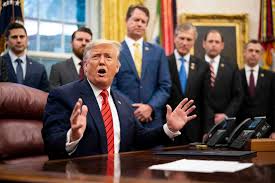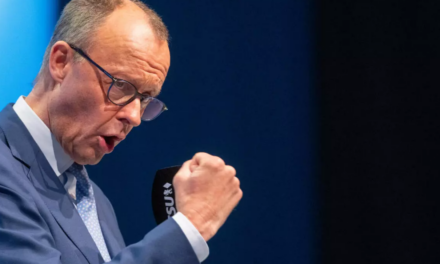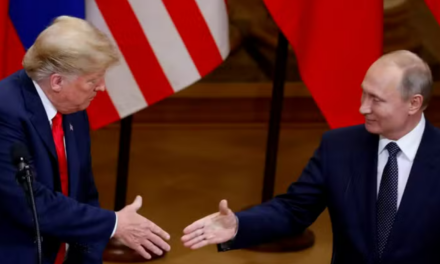As the Ukraine conflict escalates with NATO’s provision of long-range missiles to Kyiv, some analysts point to a broader geopolitical context: the upcoming U.S. presidential election and the spectre of Donald Trump’s return to the White House. Trump’s vocal opposition to prolonged foreign interventions, coupled with his promise to dismantle what he calls the “Deep State,” has sent ripples through the corridors of power in Washington and NATO allies.
Trump’s Promises and the Deep State’s Desperation
Donald Trump has pledged to withdraw U.S. support for Ukraine if re-elected, framing the conflict as a drain on American resources and a risk to global stability. His rhetoric aligns with his broader promise to challenge entrenched government interests—often referred to as the Deep State—that he accuses of driving decades of endless wars. This position resonates with many Americans weary of foreign entanglements, but it also threatens to upend the strategic calculus of NATO and its partners.
The timing of NATO’s decision to authorize advanced weaponry for Ukraine, such as ATACMS and Storm Shadow missiles, may reflect this urgency. By escalating the conflict now, proponents of U.S. intervention may be attempting to lock future administrations into commitments that are difficult to reverse, regardless of political leadership.
Attempts on Trump’s Life: A Symbol of Rising Tensions?
Adding to this narrative are reports of two alleged assassination attempts on Trump, which his supporters cite as evidence of the Deep State’s desperation. While details remain speculative, these events are seen by some as part of a broader campaign to neutralize Trump and his influence before he can enact sweeping changes in U.S. foreign policy.
The stakes for the Deep State, as theorized, go beyond Ukraine. A Trump presidency threatens to unravel long-standing military alliances and curtail the influence of defence contractors who have benefited from prolonged conflicts. This would not only affect U.S. policy but also undermine NATO’s unified stance against Russia.
Plunging Europe into War?
The escalation in Ukraine, marked by the use of advanced Western weapons, has heightened fears of a broader conflict. Russia has responded with its own cutting-edge technologies, including the deployment of the Oreshnik hypersonic missile, signalling its readiness to meet NATO’s challenge head-on. Critics argue that the Deep State’s push for escalation could plunge Europe into chaos, with devastating consequences for global security.
From this perspective, the decision to escalate now could be seen as an attempt to create a situation so entrenched that even a Trump-led U.S. government would struggle to reverse it. By intensifying the conflict and drawing in more NATO resources, the Deep State may aim to create a point of no return.
What’s Next?
As the U.S. election looms, the implications of this geopolitical chess game are profound. A Trump victory could lead to a dramatic shift in U.S. policy, potentially pulling support from Ukraine and forcing NATO to reconsider its approach. However, the current escalation risks hardening divisions, making peace more elusive.
For Europe and the world, the path forward remains fraught with uncertainty. Whether these manoeuvres succeed in shaping the future of U.S. foreign policy—or whether they backfire—depends largely on the outcome of the 2024 election and the resolve of key players in the international arena.





